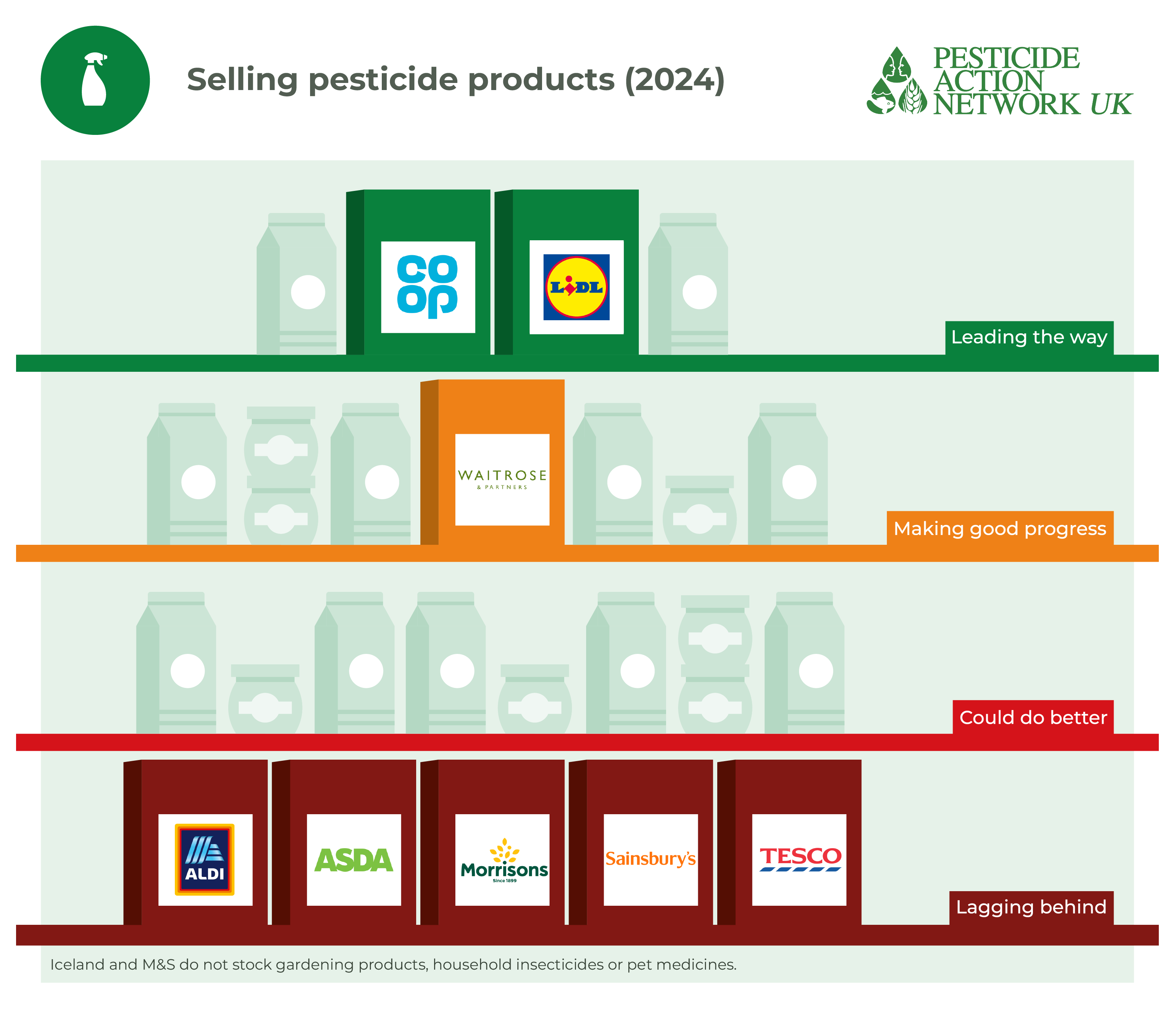
Many UK supermarkets sell a range of products containing Highly Hazardous Pesticides – most commonly garden weedkillers, pet tick and flea treatments and household sprays and powders designed to kill insects. People are understandably shocked to see these poisons still nestled among the food aisles. There is absolutely no justification for pesticide products that pose a risk to human health and environment to be used by the general public.
Gardening products
In 2019, France banned all non-agricultural pesticides meaning they are now only available to licensed farmers to use on agricultural crops. This means that French amateur gardeners are no longer allowed to buy or use chemical weedkillers or insecticides. The UK government should follow suit but, in the meantime, supermarkets have a clear role to play in reducing the availability of these products by stopping selling them. Instead, they could be offering low-risk alternatives to their customers by selling ranges of non-chemical products such as biopesticides and items, like netting, which create physical barriers to prevent insects getting to the plant. See our Guide to Gardening Without Pesticides for more information.
In addition, supermarkets should not be offering deals or discounts which encourage shoppers to buy more pesticides than they need. This can lead to people eventually getting rid of unused pesticides by pouring them down the sink or putting them in the bin which can contaminate water and soil. It also contravenes the UN International Code of Conduct on Pesticide Management which says that retailers should not offer “…incentives or gifts to encourage the purchase of pesticides.”
Of the ten largest UK supermarkets, five continue to sell high-risk pesticide products for gardening (Aldi, Asda, Morrisons, Sainsbury’s and Tesco). This total excludes M&S and Iceland which do not stock gardening ranges. Meanwhile, between 2021 and 2024, Co-op, Waitrose and Lidl all took the hugely positive step of removing these products from their shelves. In order to protect the health of humans, wildlife and pets, we strongly urge the five other supermarkets to follow suit.
Pet tick and flea treatments
There is growing evidence that the pesticides contained in pet medicines are leaching into UK rivers posing a major risk to wildlife, in particular aquatic species. While some medicines can only be prescribed by vets, many can just be bought over the counter.
There are five Highly Hazardous Pesticides widely used in pet medicines that are not permitted for use on agricultural crops due to their impact on human health and/or the environment. Two are known to contaminate water and all five are highly bee toxic – including three neonicotinoids which are notorious for driving declines in global bee populations.
For the sake of UK biodiversity, the four supermarkets still selling these products (Asda, Morrisons, Sainsbury’s and Tesco) should remove them from their shelves as soon as possible.
Household products
Highly Hazardous Pesticides (HHPs) can also be found in products made for use in the home, most commonly those designed to kill insects. For example, many ant and cockroach sprays and powders contain cypermethrin and/or deltamethrin and rat poisons often contain brodifacoum. Supermarkets should immediately end their sale of products containing such toxic substances and consider stocking less harmful, non-chemical alternatives.








